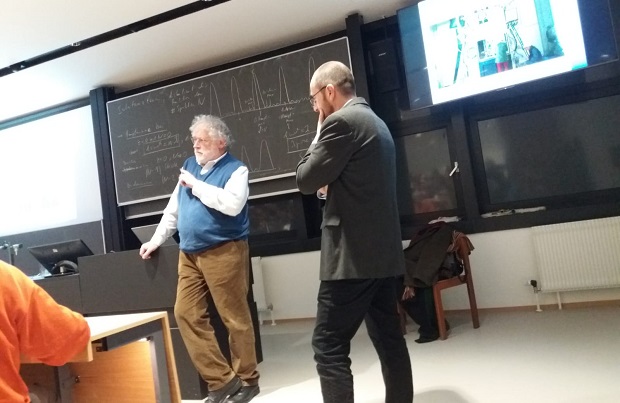The JKU extends its most heartfelt congratulations to quantum physicist Anton Zeilinger on winning the 2022 Nobel Prize in Physics.

JKU Rector Meinhard Lukas is delighted that the Austrian physicist has won this most prestigious award: "This honor proves that even in these times, Austrian universities can produce Nobel Prize winners. This can serve as an incentive for all of us to strive toward improving our high standards. I would like to sincerely congratulate Professor Zeilinger on this well-deserved recognition of his life's work on behalf of base-knowledge research in physics. I believe he will serve as an example to policymakers, and young people in particular, as to just how important and productive research is across all areas of our lives."
Research Based on Zeilinger's Work
Zeilinger has received the Nobel Prize along with John F. Clauser and Alain Aspect, meaning three quantum physicists, so to say. Professor Armando Rastelli (head of the Institute of Semiconductor and Solid-State Physics) remarked: "This is a well-deserved accolade and acknowledgement. You would be hard-pressed to find any field of research that is more elementary to our understanding of the world as well as in support of developing and advancing modern technologies." The JKU physicist works together with colleagues closely associated with Prof. Zeilinger's circle to address quantum communication and quantum information transfer. "Our projects to generate and transmit quantum-physically entangled light particles would have been impossible without Zeilinger's groundwork."
Rastelli added: "Prof. Zeilinger has enriched our understanding of quantum level processes on a massive scale. I am truly pleased that this exceptional researcher, for whom I also have a high personal regard, has received the recognition he deserves for his important work." Prof. Rastelli hopes to continue working with the recent Nobel laureate on modern methods in quantum cryptography as well as on other projects.








